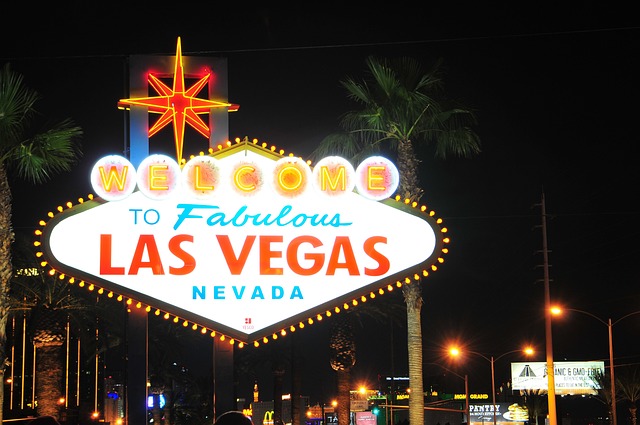With thousands of online casinos operating globally, it’s essential for players to know whether a platform is legitimate and trustworthy. One of the most important indicators of a casino’s credibility is its license. However, not all licenses are equal. Some authorities enforce strict regulations to protect players, while others offer minimal oversight. Understanding how to compare online casino licensing authorities will help you choose safe platforms and avoid scams.
Why Licensing Matters in Online Gambling
A casino license isn’t just a legal formality—it’s a quality and security signal. Licensed casinos are held accountable by their regulators for:
- Game fairness and Random Number Generator (RNG) testing
- Secure handling of player funds and data
- Transparent bonus terms and anti-fraud measures
- Dispute resolution procedures for players
- Responsible gambling tools and player protection policies
Unlicensed or poorly regulated sites may operate in gray areas, offer unfair games, or disappear with your funds. That’s why it’s crucial to know who issued the license and how reliable that authority is.
Top-Tier Licensing Authorities

Some regulatory bodies are known for their high standards, regular audits, and strict enforcement. These include:
1. UK Gambling Commission (UKGC)
The UKGC is widely considered the gold standard in online gambling regulation. Casinos with this license must meet tough rules on player protection, advertising, and responsible gambling. They often have tools like deposit limits, self-exclusion, and dispute mediation services.
2. Malta Gaming Authority (MGA)
The MGA is another highly reputable authority. Based in the EU, it ensures fair play, data security, and financial integrity. MGA casinos are popular across Europe and known for complying with strict laws.
3. Alcohol and Gaming Commission of Ontario (AGCO)
As Canada’s newly established regulatory body for online gambling, AGCO has become a model for modern regulation—particularly in player rights, marketing fairness, and licensing transparency.
4. Gibraltar Gambling Commissioner
Though smaller in scale, Gibraltar offers robust oversight and collaborates with other EU bodies to ensure compliance. It is particularly popular with sportsbooks and large operators.
5. Isle of Man Gambling Supervision Commission
Known for its rigorous auditing and transparent policies, this regulator is trusted by both players and companies looking for regulatory stability.
Casinos licensed by any of the above are generally safe, reliable, and fair.
Mid-Tier and Offshore Licenses
Other licensing bodies exist mainly to offer legal cover but may lack the resources or will to enforce high standards. While not necessarily unsafe, these licenses demand a more cautious approach.
1. Curaçao eGaming
One of the most common offshore licenses due to its low fees and easy setup. Curaçao does have legal recognition, but its enforcement of player complaints or game fairness is often weak. Many legitimate casinos operate under it—but so do many questionable ones.
2. Panama Gaming Control Board
Used by some crypto and offshore casinos, this license has minimal visibility and oversight. Players rarely have a clear path for filing complaints.
3. Kahnawake Gaming Commission (Canada)
While Kahnawake has a long-standing history in online gambling, its enforcement and standards are often seen as less transparent than larger regulators.
How to Check a Casino’s License
A trustworthy casino should display its license clearly in the footer of its homepage, along with a license number and a clickable link to the regulator’s website. To verify:
- Visit the licensing authority’s official site
- Use the license number or casino name to search the registry
- Ensure the license is active and matches the operator’s listed domains
- Look for any warnings or sanctions against the brand
If this information is missing or hard to find, that’s a red flag. Legitimate casinos want players to feel safe and will promote their credentials transparently.
Key Factors to Compare Licensing Authorities

When comparing regulators, look at these criteria:
- Player Protection: Are tools like self-exclusion, betting limits, and support hotlines required?
- Dispute Resolution: Does the authority offer a process for complaints?
- Audit Requirements: Are games and software tested regularly for fairness?
- Transparency: Can you easily verify licenses and operators?
- Jurisdictional Reach: Does the license allow legal operation in your region?
Also, consider how the regulator treats violations. Authorities like the UKGC issue fines, revoke licenses, and publish detailed reports—while others may do none of that.
Red Flags in Licensing
Be cautious of casinos that:
- Claim to be “licensed” but provide no regulator name or number
- Invent fake licenses or logos
- Operate under expired or revoked licenses
- Use licenses from non-gambling agencies (e.g., business bureaus, not gambling regulators)
If a casino won’t tell you where it’s licensed—or the regulator is unknown—it’s not worth the risk.
Final Thoughts
Not all online casino licenses are created equal. Choosing a platform regulated by a respected licensing authority can drastically reduce your risk of unfair treatment, lost funds, or unethical practices. The most trustworthy licenses—like those from the UKGC or MGA—offer real protection, oversight, and accountability.
Before placing any bets, take the time to research a casino’s license. A few minutes of verification could save you from major headaches, helping ensure that your gambling experience is secure, fair, and enjoyable.
